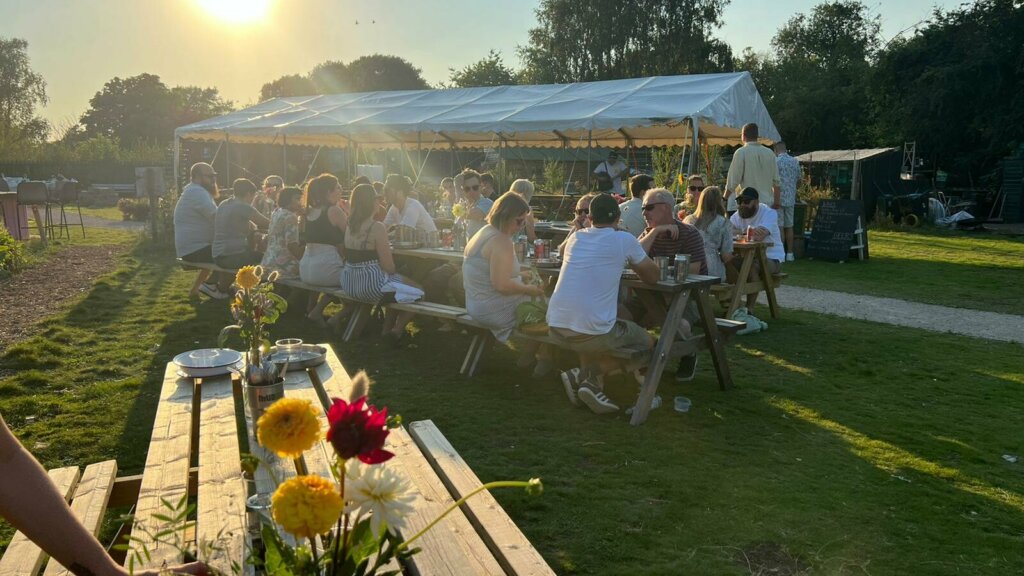
This blog was originally published on the Food Citizenship website.
One of the best tools we have in growing and strengthening the food citizenship movement is real stories about those who are doing it. These are both organisations that were set up with purpose, as well as existing businesses who have recognised that the old ways of operating no longer serve them, their communities or the planet. This series of interviews is designed to spotlight these stories, to provide inspiration and practical, pragmatic steps that can be taken to begin or deepen your practice as a food citizen organisation or business.
We are kicking off our Food Citizenship Spotlight series with Sam Payne from Manchester Urban Diggers (MUD). MUD is a non-for-profit social enterprise dedicated to finding local solutions to a broken food system. This includes advocating for food sovereignty, providing volunteering opportunities and services, and growing fruit, vegetables and herbs to make available to the local community. As part of MUD, Sam runs the absolutely gorgeous Platt Fields Market Garden, a community market garden in Fallowfields. I spent some time there in April for a team away day, and immediately knew this would be a brilliant story to kick off the series with.
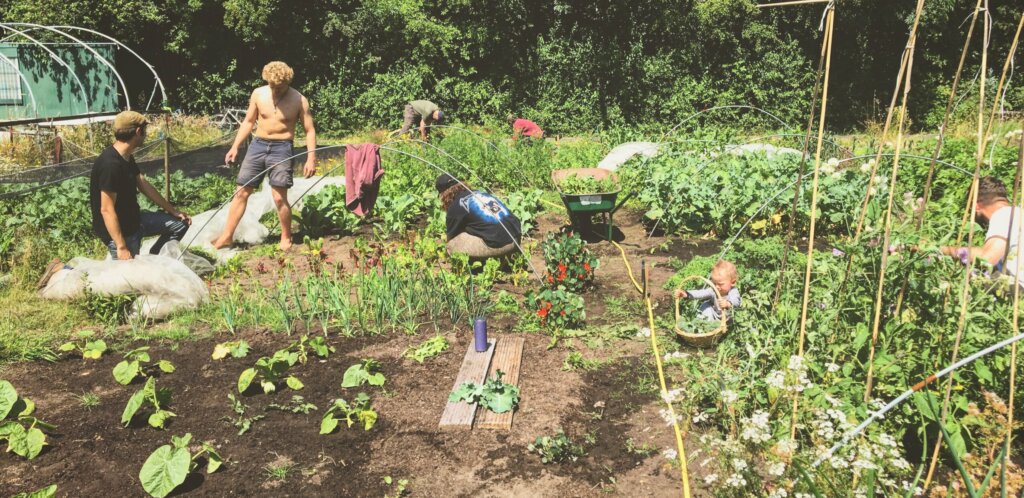
The journey began with Sam and friend Jo attending a Kindling Trust course on Commercial Market Gardening, followed by what Sam describes as the lucky break of Manchester Council offering them a disused bit of land in a local park to begin working with. I’d also highlight it as a lucky break for the Council, given all that has emerged from the careful stewardship of that little patch of land.
Sam and Jo worked hard to clear and cultivate this land alongside full time jobs elsewhere, but the serendipity of the land’s location – in a busy public park – meant that people began walking past and asking, ‘what’s going on here?’. It sparked interest and enthusiasm and volunteers started to come – lots of them. In 2019, Sam and Jo set up MUD as a C.I.C, so they could make MUD and its first project – Platt Fields – their day jobs, delivering workshops and wellbeing activities alongside the development of the garden. And then, six months later, COVID happened. This meant a shift to a complete focus on food growing on the site – an essential service during lockdown. Hundreds of people who were furloughed signed up to volunteer and the site and its produce began to flourish. Platt Fields also quickly became a place where local people could safely shop for good, affordable veg while also getting some restorative outdoor time, close to home.
After the lockdowns, MUD started working on other projects at different sites, while still stewarding and developing Platt Fields. These included some experiments – for example, collaborating with a restaurant to design and build a rooftop garden at The Landing, providing veg and herbs for the restaurant and people in Stockport. MUD’s work has shifted and evolved – they do some garden design and builds for other communities too. They offer wellbeing workshops and social and horticultural therapy. And at Platt Fields, as well as selling the veg, they are now using it in their own catering service to feed people at events onsite.
For Sam, Platt Fields has been a way of building community, and this evolution has made him reflect on the lack of that feeling in lots of places where he grew up. “It feels like a proper community here now – it’s definitely the centre of my community”. Platt Fields is a community market garden, grown by the community, to feed and care for the community.
He spoke too about passionately caring for nature and wanting better for people in Manchester than “bland, horrible, unethically sourced veg in supermarkets”. He explains “there’s a food system thing there – in Manchester there are only one or two good options for [buying ethical veg] and that’s not going to make a big change. So, we’ve turned this small idea of growing veg into a bigger idea…we got ourselves into this position, accidentally and maybe we can make something out of it and try and do a bit more”.
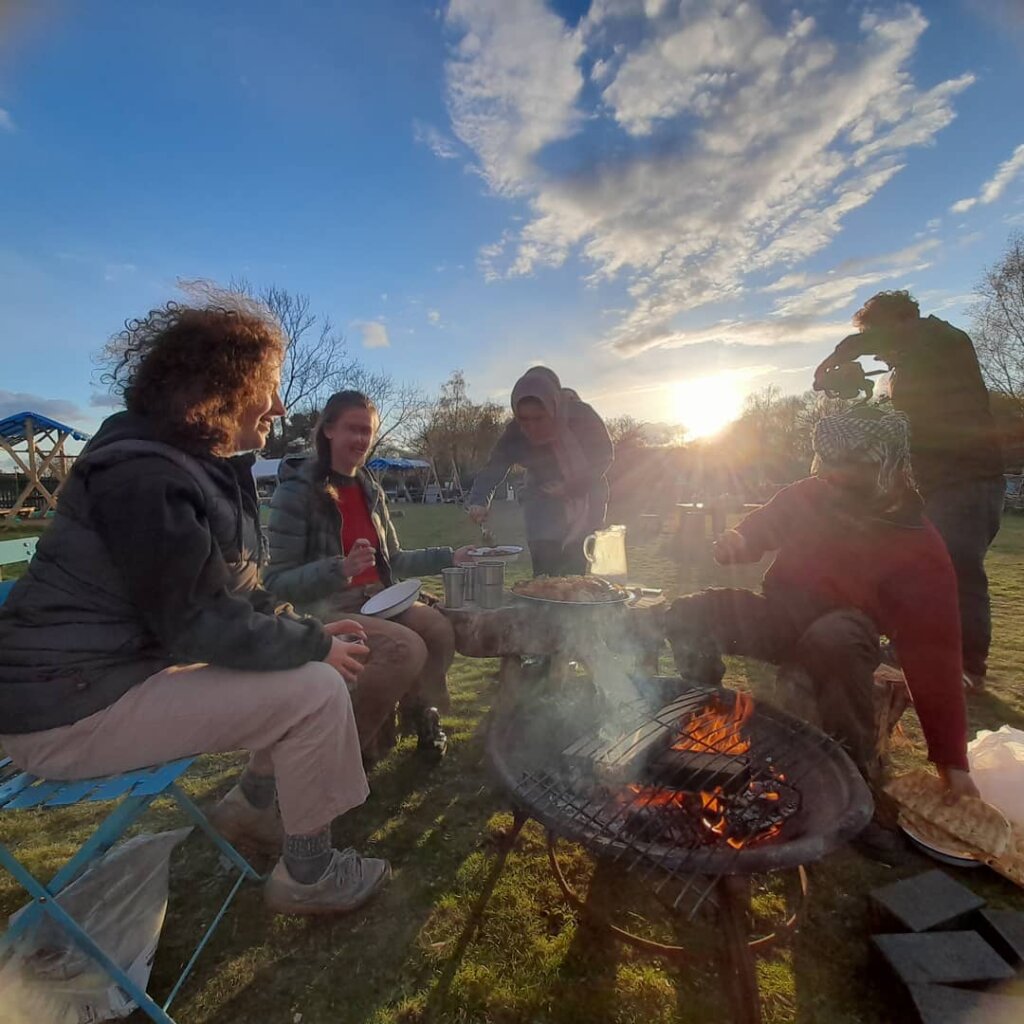
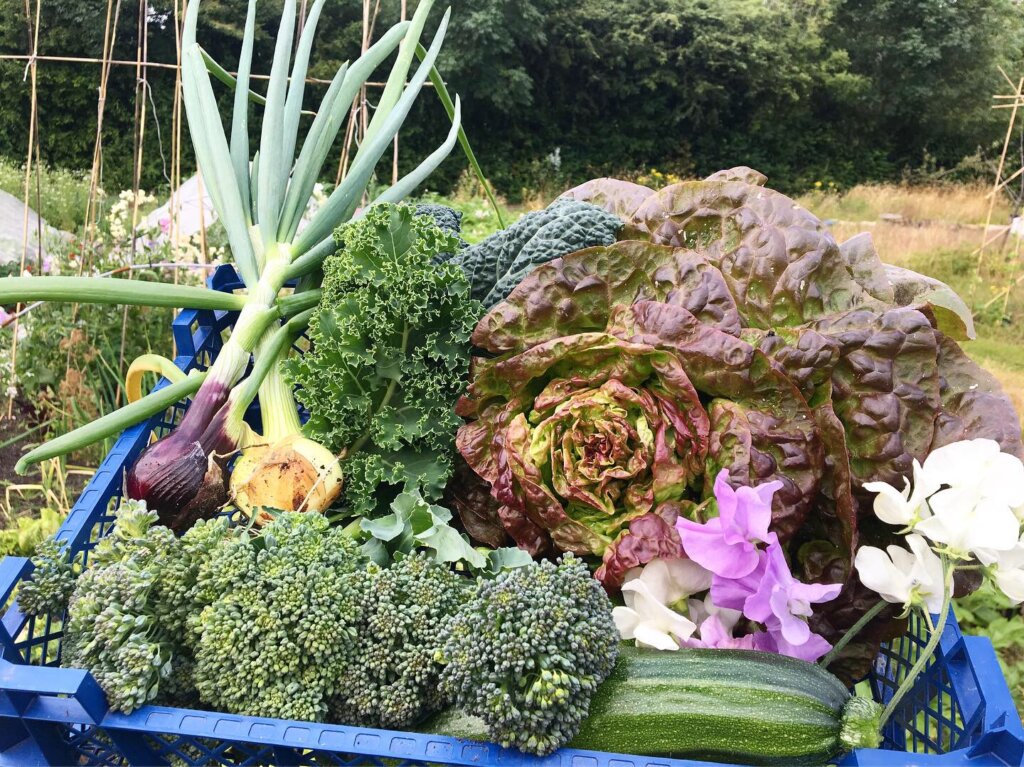
Sam: I don’t know, I only know it from you. I mean in school, we did citizenship as a subject – it’s about being a good citizen, knowing about your local area. Is that right?
Beth: I am mostly interested in hearing from you but I will say that food citizenship is about connecting people with their power in the food system, especially where it feels like they don’t have any. I do that by working with organisations – thinking about the language we use to engage people, and how to reach out to people in ways that make them want to be meaningfully involved. I encourage people to use the word ‘citizen’, or at least ‘people’, as opposed to ‘service users’, ‘consumers’ or ‘clients’. And the short answer is – you don’t need me! You are food citizens through and through. Which is why I wanted to talk to you – so much of what you do is exactly it.
Sam: I like that, I read a really good book by Cormac Russell about this (Cormac Russell is a great champion of the asset-based community development movement). I don’t like distance between us and volunteers – a lot of organisations put a weird invisible shield between volunteers and the organisation, that’s one of the good things about MUD. We’re all mates.
In fundraising, a lot of the applications we write ask questions about ‘service users’ and we just use the word people. It’s just people, isn’t it?
We are always really approachable, we’re always on the land, milling around. Half of the staff started as volunteers and moved into being employed. We have loads of projects, particularly in Platt Fields, because that’s our space where people can bring their own ideas – as an example, one person wanted to start a pottery stand. We found a bit of space, she built a pottery stand and she does workshops there within Platt Fields.
More formally, we do loads of surveys, questionnaires, interviews and case studies, as well as an open Annual General Meeting.
(laughing) Well, I’ve definitely had to let go of my preciousness about my tools. There’s loads that have been lost and left out and rusted.
It’s difficult to answer – it’s been an emotional rollercoaster the past few years. Financially I’ve had to let go and accept that I’m not going to get paid very much for a long time but I’m ok with that.
Emotionally, in terms of the stress. In the day to day work, we have lots of fun, we’re gardening in really nice scenery and gardens, there’s people and communication – but then we’re also very stressed financially, the responsibility of making sure we have enough money coming in each month to pay people and keep it all going…we’ve been trying to put our prices up both because we’re reassessing everything and have realised we’re just not charging enough, but also to account for inflation. We do get some snide comments about the food being too expensive and, us being us, we take it quite personally.
It’s difficult to balance selling the veg and growing the veg. We want to look after people and be socially responsible, saying ‘you can have it for free if you need it’ or pay as you feel. But we’re also trying to properly value the work that we do – like this is the price, this is the cost of it. And if we continue giving away as much as we have been, it will become unsustainable. There’s a tightrope of staying true to our values and trying to be as nice to other people as possible, while also keeping enough back.
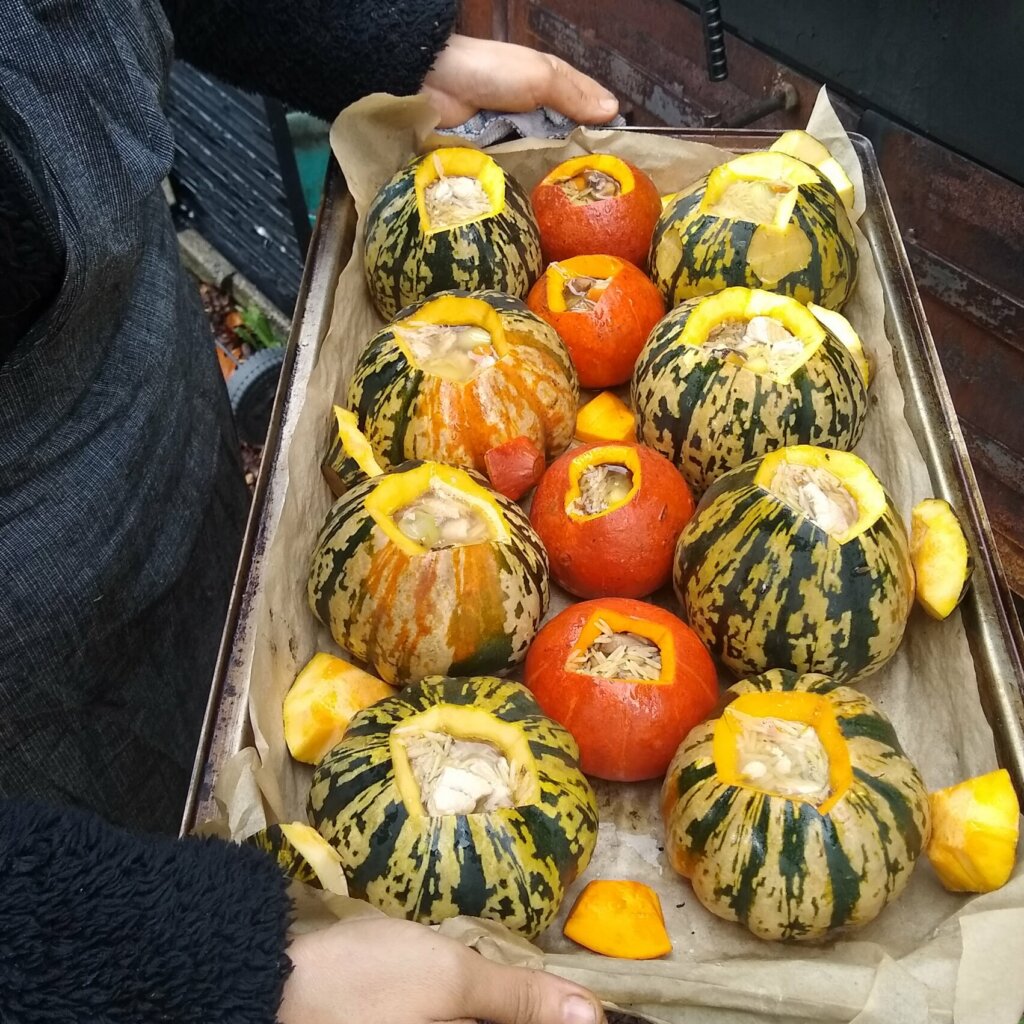
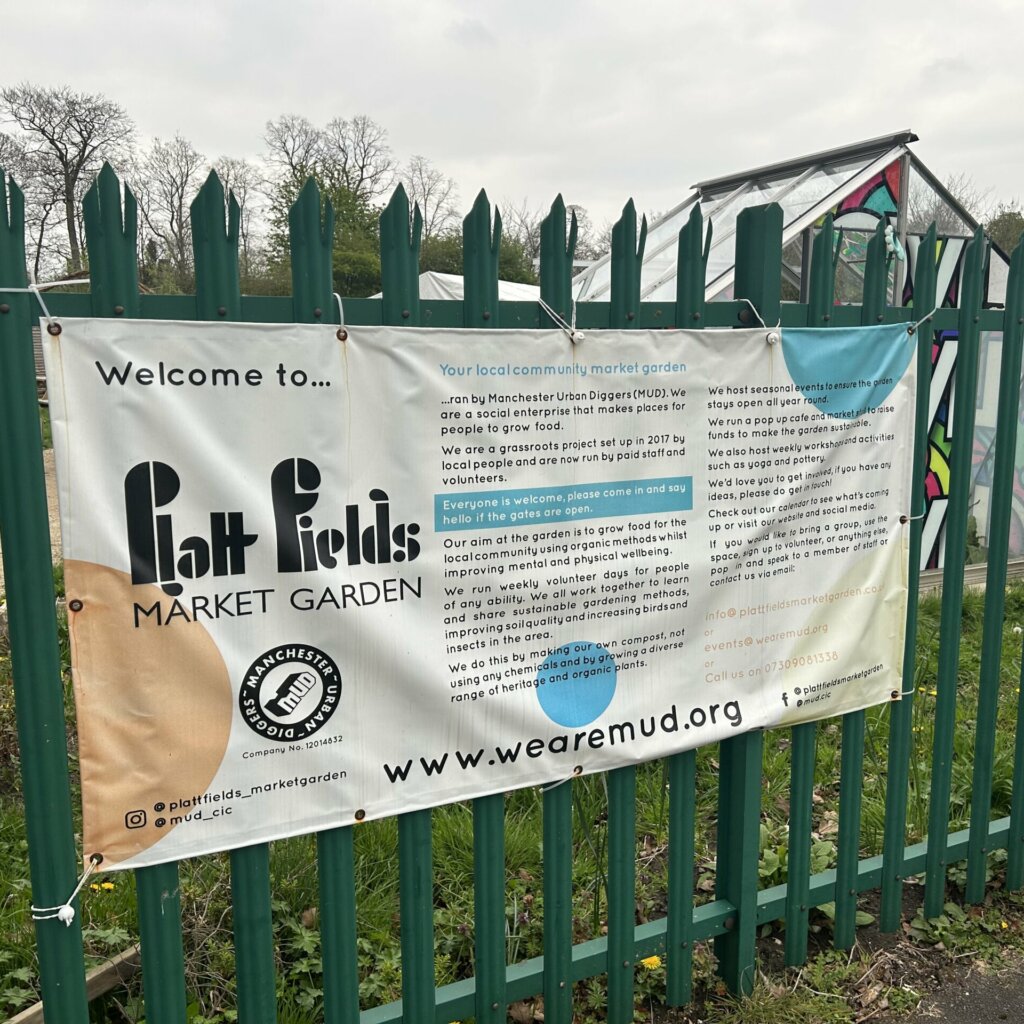
So many things have happened. But no, I don’t think so – we’re here. We’ve got here – if we hadn’t have made those mistakes, we wouldn’t necessarily be here – you learn from them, don’t you?
I feel proud of the wellbeing side of the work we do. Lots of people come to the garden and just feel better. The feedback is things like ‘the garden is the centre of my social life’ or ‘this is my safe place’. I really appreciate those things as it feels worthwhile then – people valuing it that much.
You can always see a number on a sheet of paper which says we had x amount of volunteers or served so many free meals, but the comments and feedback make it emotional.
Loads of things. Everyone around me. It’s more like, we inspire each other do, as we’re collectively going down to the gardens together and someone has an idea, and we say, ‘let’s do that’. We work off each other, we all inspire each other.
I like to see nice allotments when I walk past them, they do inspire me.
I’ve had a lot of fun. It’s been fun and exciting because lots of people are involved and we’re being creative. But fun for other people who maybe just want to be in a field, head down and gardening.
Find whatever is fun to you – and use that passion to drive it.
